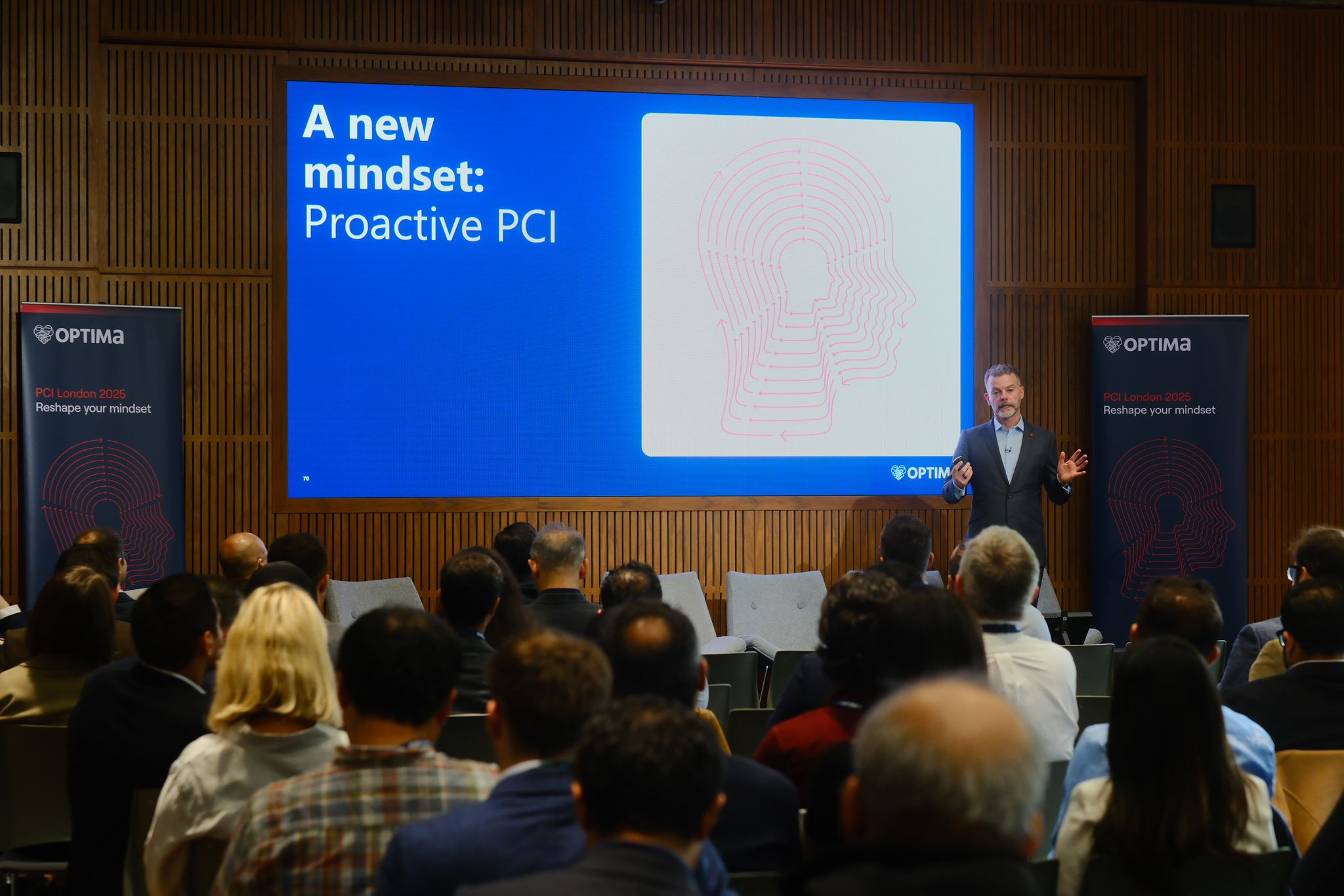The programme began on 8 October with a Key Opinion Leader (KoL) day. Talks were given by Professor James Spratt, Dr Matt Sibbauld and Dr Carlos Collet. They discussed how the pressures of aging populations, stress-inducing cath labs, competing priorities, and growing demands on teams have created a perfect storm. A storm that’s driving increased strain on PCI professionals and continually threatening patient outcomes.
This set the scene for understanding how Proactive PCI can help clinicians plan ahead, reduce variability and achieve better outcomes.
Following these discussions, an innovative, interactive train the trainer session on quality communication engaged fifty-seven KoLs in exploring practical techniques to inspire, influence, and connect with others. The session was highly hands-on, featuring real-world scenarios and dynamic exercises that participants could immediately apply in their own teaching and clinical sessions over the following two days.
Over the three days, delegates attended in person for hands-on sessions, debates and live cases from around the world, supported by valued input from our industry partners.
The central theme of the course was Reframe Your Mindset. Participants were encouraged to approach challenges proactively, tackle variability directly, and use careful planning to deliver consistent, high-quality outcomes.
It was the first time Optima ran a train the trainer session in this format, and it was a great success. Seeing our team of educators, event managers, creatives and storytellers deliver a seamless and inspiring experience was a proud moment.
Looking back on PCI London 2025, it was exciting to see growth, collaboration and engagement at every level. We are particularly proud that our community is making a difference, spreading knowledge through those we have educated. Some of the content from London will be shared in Munich and Istanbul in the coming weeks, and we are already looking forward to London 2026.
The course was a reminder that learning is a journey, one where education, clinical practice and industry come together to navigate complexity, address variability and shape the future of cardiology.


